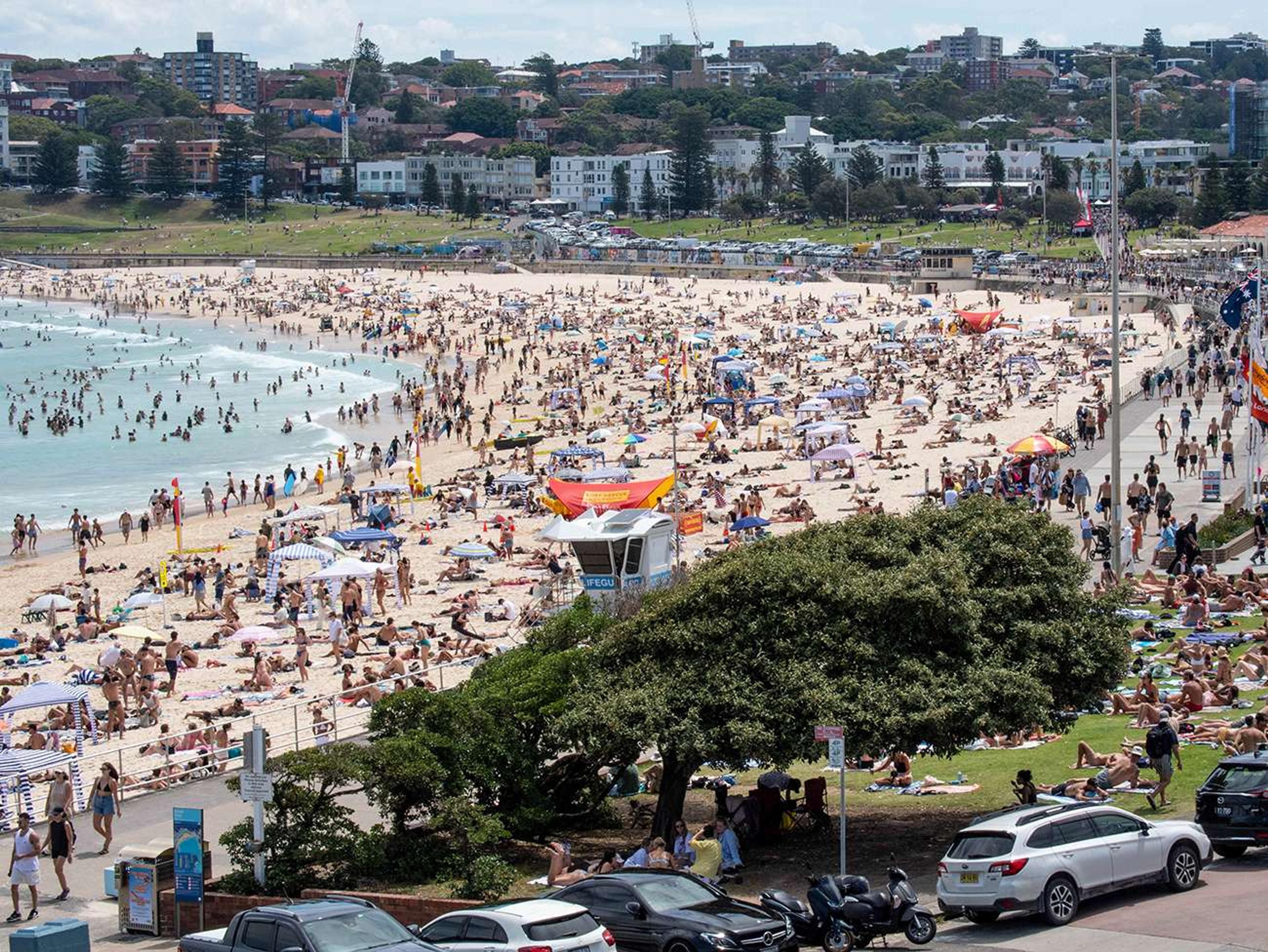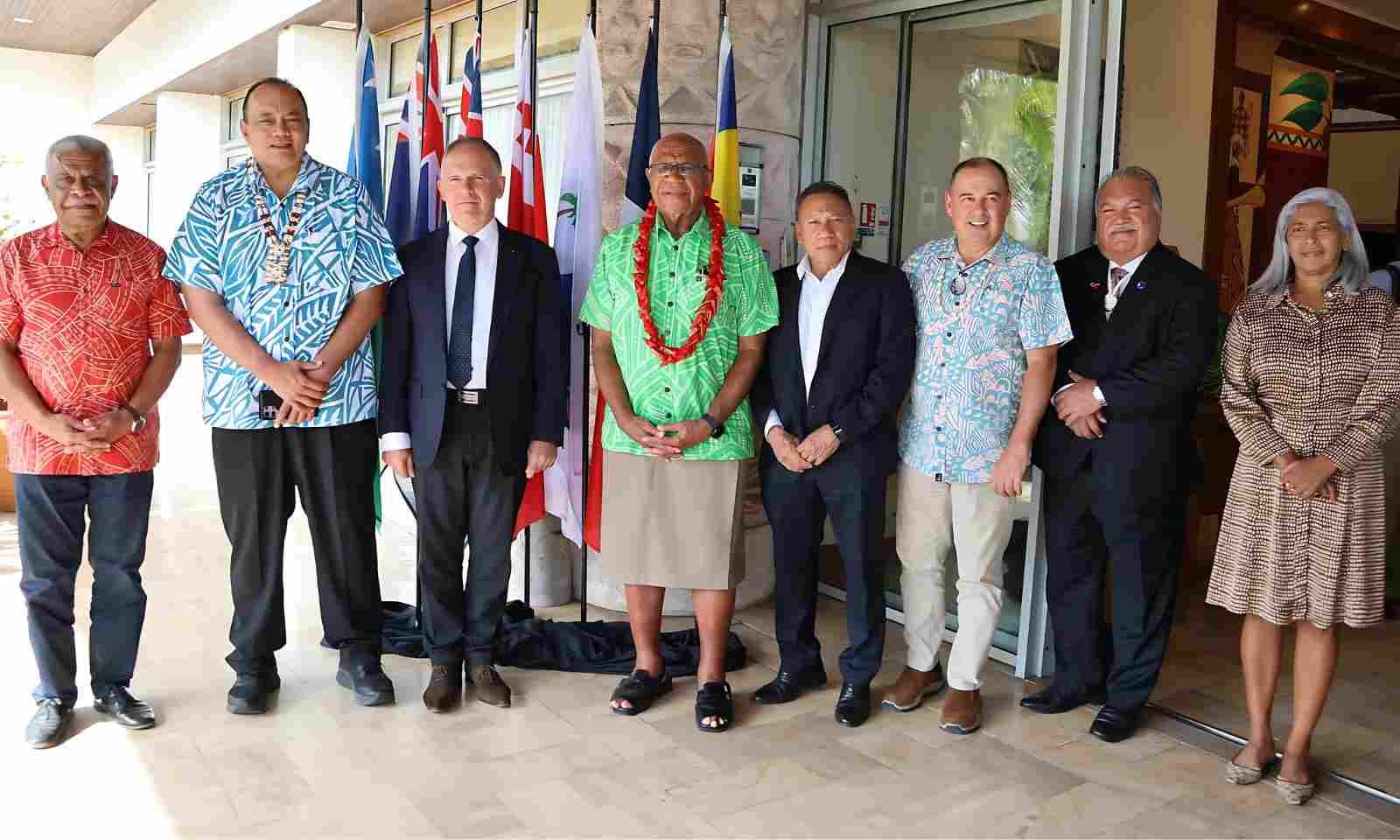

Donald Trump’s victory speech included UFC chief executive of the combat sport organisation.
Photo/The White House
Trump’s re-election a wake-up call for NZ: political commentator
Local and Pacific MPs weigh in on the political and economic consequences of one of the greatest comebacks in US history.



Black Caps legend joins global fight against gender violence

US warns Fiji over human trafficking concerns linked to Grace Road Group

‘A man so full of love’: Fepulea’i awarded comedy Topp Prize


Pacific leaders call for unity after Bondi attack

Black Caps legend joins global fight against gender violence

US warns Fiji over human trafficking concerns linked to Grace Road Group

‘A man so full of love’: Fepulea’i awarded comedy Topp Prize
Donald Trump has returned to his presidential seat, toppling Democratic nominee Kamala Harris for 2024, but what does this mean for the Pacific?
Many had prophesied Trump's victory early on and those predictions were realised after Harris secured 224 electoral votes while Trump garnered 292.
Speaking to William Terite on Pacific Mornings, former Chief of Staff for Marco Rubio, Matt Terrill, lauded Donald Trump’s 2024 victory as a big night for Republicans.
"Whether you're a Trump supporter or not you have to recognise that this was not just a big win in terms of the electoral college but the fact they won the popular vote - that's a big deal," Terrill said.
Watch Matt Terrill's full interview via 531pi's FB below:
Political commentator and Republican supporter Christian Malietoa-Brown said the neck-and-neck predictions between the two candidates could not be more wrong.
He said mainstream media outlets that run voting polls during election seasons, and the political establishment as a whole need better introspection next time otherwise "nobody's going to watch them or listen to them".
In terms of how a Trump administration would impact NZ and the Pacific, Malietoa-Brown said he saw fellow National Party members "freaking out" on social media about how local businesses will be "slapped with 20 per cent tariffs and stuff like that".
"For me, Trump's not New Zealand's President, Trump is America's President and he's got to do what's best for America," he said.
Malietoa-Brown said although it's a wake-up call for New Zealand that he will not engage in "doomsday" rhetoric, especially considering that Foreign Affairs Minister Winston Peters and Prime Minister Christopher Luxon have pre-established relationships with the US.
"I think Trump is going to be true to himself, he's got the art of the deal, and he's going to negotiate.
"If we come to the table with what we can really bring, what makes New Zealand great - which is the fact that we're a beautiful country, we're green we have that brand across the world - I think we can do a deal with Trump where we come out pretty good in this and the Pacific in extension of that whole relationship."
Watch Christian Malietoa-Brown's full interview via 531pi's FB below:
Pacific region reactions
Meanwhile, the Tongan and Fijian prime ministers are among the first Pacific Island leaders to congratulate US President-elect Donald Trump.
Tonga's Hu'akavameiliku Siaosi Sovaleni said he looked forward to advancing the Tonga-US bilateral relationship and Pacific interests.
Sitiveni Rabuka said Fiji looked forward to deepening bilateral ties with the States to further shared aspirations for the Pacific and beyond, including promoting peace and economic prosperity.

From left, New Caledonia President Louis Mapou, PIF chair and Tonga Prime Minister Hu’akavameiliku Siaosi Sovaleni, French envoy to New Caledonia Louis Le Franc, Fiji PM Sitiveni Rabuka, Solomon Islands Foreign Minister Peter Shanel Agovaka, Cook Islands PM Mark Brown, PIF secretary-general Baron Waqa, and France's special envoy to the Pacific Vēronique Roger-Lacan. Photo/Pacific Islands Forum Secretariat.
The US-Pacific relationship
The Biden administration introduced the first-ever dedicated Pacific Partnership Strategy, which aimed to bolster ties with the region through commitments like the Compacts of Free Association and strengthening regional cooperation under the Pacific Islands Forum (PIF).
The US had also pledged to expand its diplomatic missions in the Pacific, increasing from six to nine embassies, to support broader regional security and climate resilience efforts.
These approaches reflected their effort to counter China's growing influence and ensure the Pacific remained a free and open region while addressing the looming climate crisis.
On Trump’s foreign policy outlook, Matt Terrill said that while domestic issues dominated the campaign, foreign policy "matters without a question".
Terrill said Trump's focus regarding international matters promised to halt the start of new wars and taxes that will impact companies both within the US and overseas.
Labour MP Jenny Salesa told Pacific Mornings she hoped Trump's administration would continue the expansion of the US's diplomatic presence in the Pacific region under the previous administration.
Impact on trade
During his election run, Trump had promised that if he were to be re-elected he would end the Indo-Pacific Economic Framework (IPEF), a trade initiative between the US and the Asia-Pacific region, "on day one".
Trump called the IPEF the "TTP two", referring to the IPEF's predecessor - the Trans-Pacific Partnership (TTP) - which he withdrew the States from in 2017 on his first day in office.
Labour's Salesa acknowledged the US-NZ partnership with both being Five Eye countries, an intelligence alliance between Australia, Canada, New Zealand, the United Kingdom, and America.
However, she also raised concerns about the possibility of renewed tariffs that could impact NZ exports.
"What happened last time when the Republicans were in government is there were some tariffs that they brought through.
"For instance, our New Zealand Steel had tariffs imposed on them and so we do worry there may be some tariffs they might put on our products from New Zealand.
"We don't have a free trade agreement with the US, we have always been hopeful over many years that we would have a free trade agreement with the US."
Watch Jenny Salesa's full interview via 531pi's FB below: